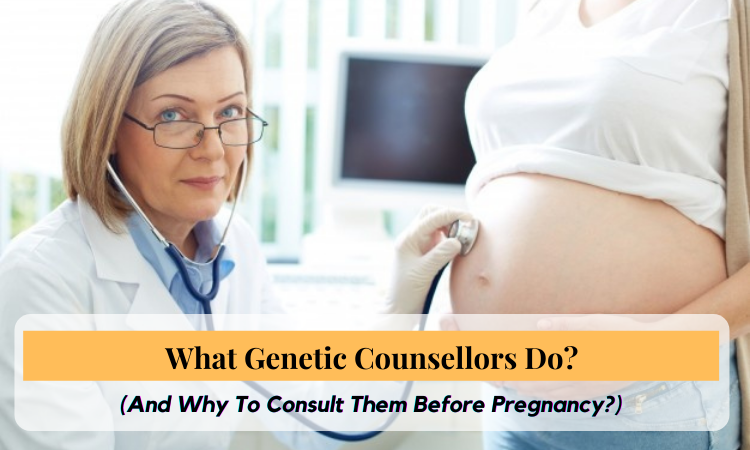There are several things a couple needs to do when planning a pregnancy so as to ensure the mother and baby are healthy and the gestation is complication-free. One of the things couples are often recommended before conceiving is genetic counselling.
What is Genetic Counselling?
Genetic counselling entails assessing the medical history and medical records of the family to identify possible genetic disorders. Specific tests (involving blood or body tissues) could be ordered by the doctor to get a clearer picture of the genetic disorders and how they may affect you and your offspring. The doctor will additionally use various other information before making any conclusive remark and offering advice to the couple planning pregnancy.
What do Genetic Counsellors do?
The genetic counsellors evaluate the result of your genetic tests. They identify the potential risks of an inherited disorder. They explain to the couples what the test result means, as well as provide insights into inheritance patterns of disorders.
Although a genetic counsellor won’t explicitly tell you what you should do if there are risks of your baby having birth defects, they can provide you with all the relevant information you need, show you all the options, and even provide case studies of other couples.
Who Should Seek Genetic Counseling?
Not every couple should opt for genetic counselling before conceiving. In instances where some diseases run in their family should they choose to visit a genetic counsellor? However, every pregnant woman is recommended for this counselling to screen for Down syndrome.
All said, there are certain factors that make genetic counselling a must:
- If you have had more than 2 miscarriages
- If you already have children with birth defects
- If the result of the prenatal screening test is abnormal
- If anyone or both parent has inherited disease
- If the close relative of any of the parents has birth defects
- If the mother is over 35 years old (this increases the chance of the child having Down syndrome)
What to Expect from Genetic Counselling?
The genetic counsellor will help you understand the risk of inherited disorder and how it will affect your baby. They will base this on their interpretation of test results, as well as various other information you provide to them, like if you have any relative with any disorder if you have had any failed pregnancy before, what type of medicines you take, and more.
Note, however, even if any problem is identified, it’s possible to treat it. Thanks to the advancements we have made in the medical field, common birth defects are treatable. For instance, cleft palate and heart defects in the unborn child can be surgically repaired.
What are the Next Steps?
If you have gone for genetic counselling before pregnancy and you learn about the risk of your baby having birth defects, you have several options at hand. You can go for a pre-implantation diagnosis, use donor eggs or donor sperm, take the risk and have a child. In such cases, many couples also choose to adopt a baby.
In case if you have gone for genetic counselling after conceiving and you learn about the risks of your baby having birth defects, there are several options as well. You can choose to have the baby and prepare to take the challenges that can possibly come with it. You can opt for fetal surgery to treat defects in your unborn child. You can also end the pregnancy.
Your genetic counsellor will lay down all the options you have and ensure maximum support. In the end, you have to make the decision. Visit Fetomat if you’re looking for the best genetic counsellor in Kolkata. We offer comprehensive genetic testing in Kolkata, also extending complete support to couples. Over the years, we have helped hundreds of couples. Get in touch with us today and let’s talk.

